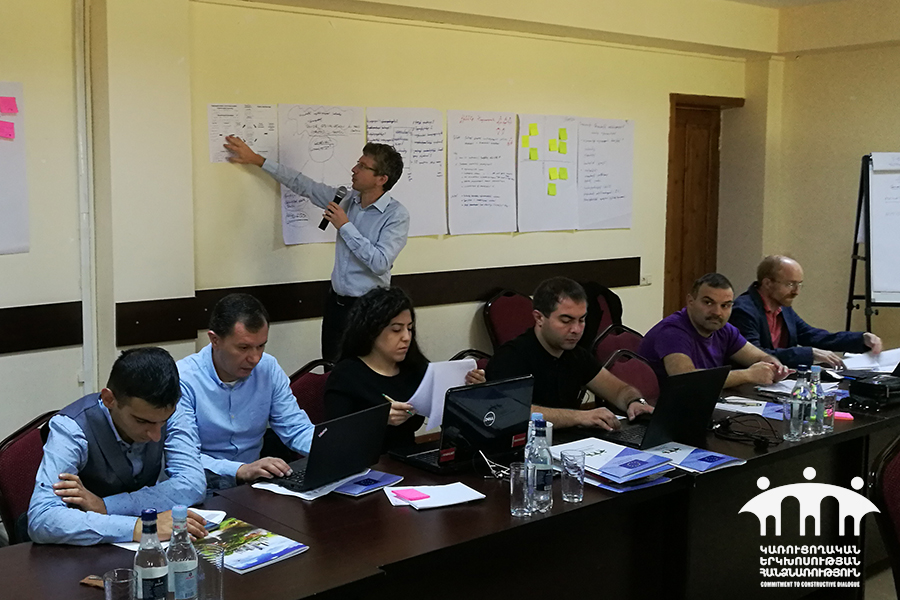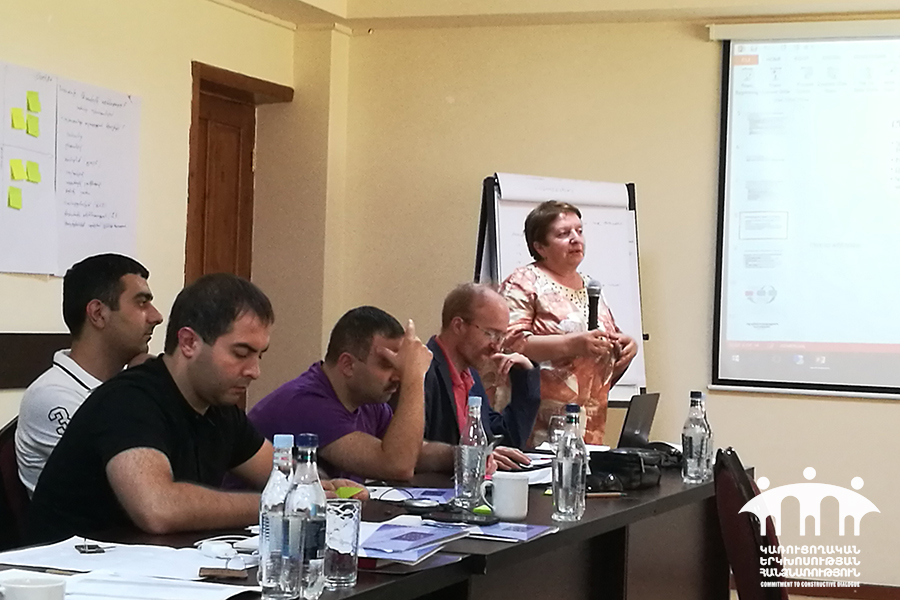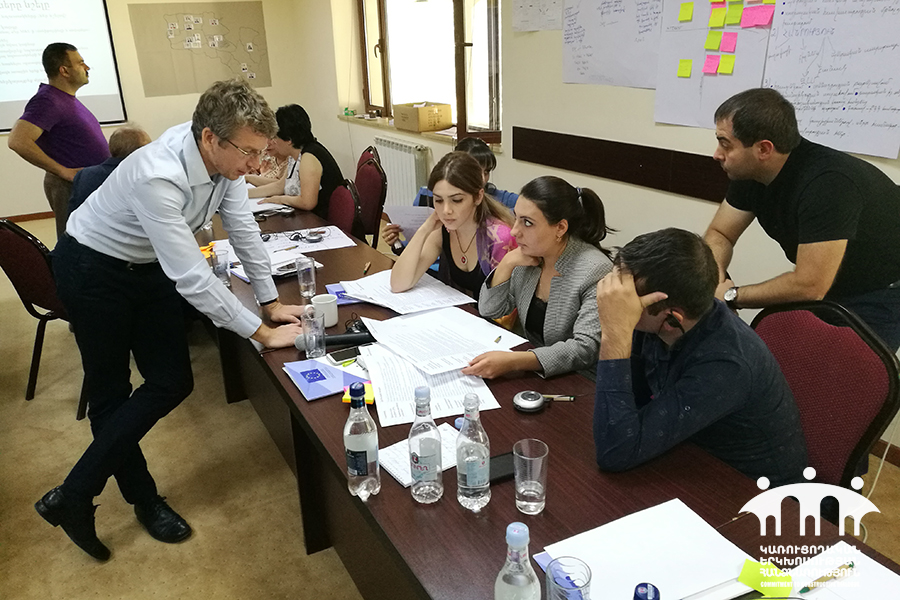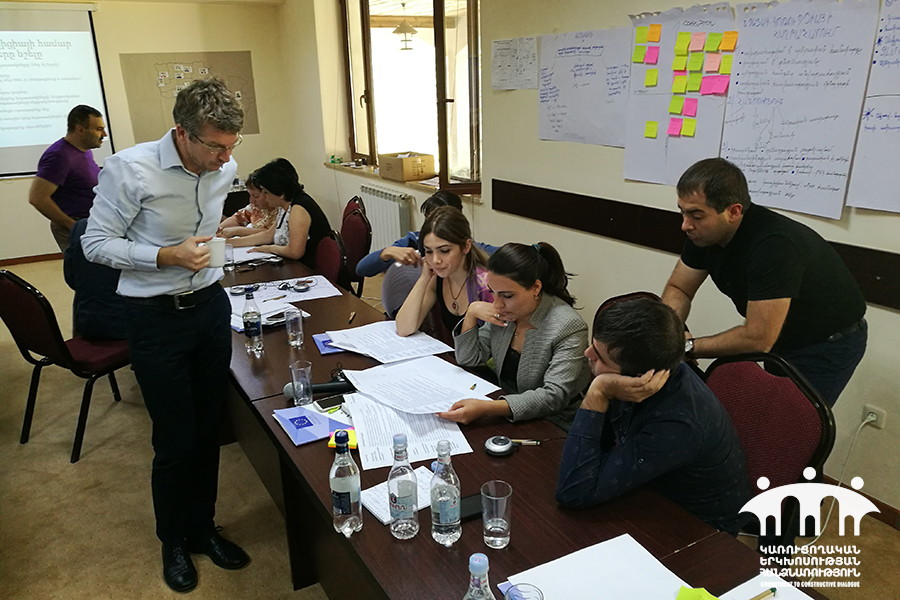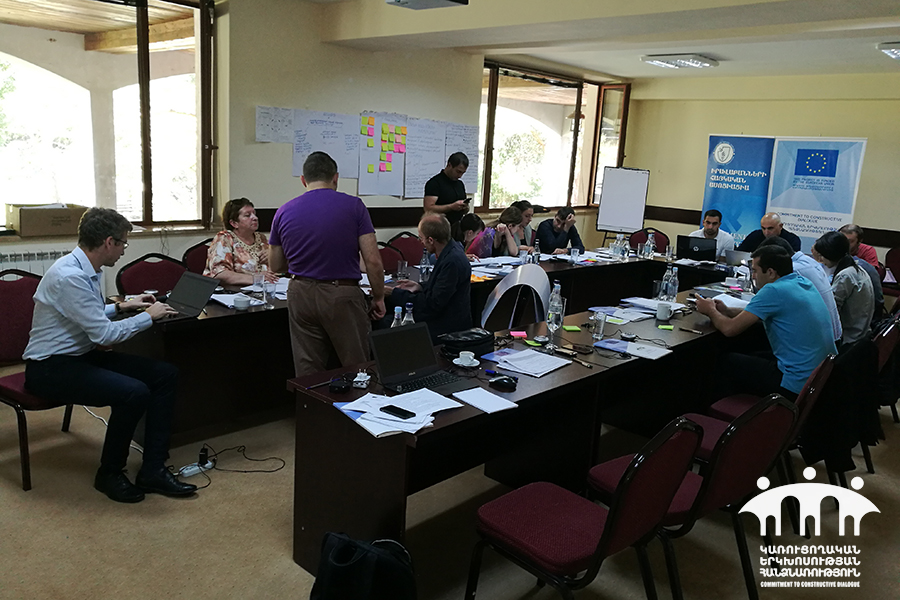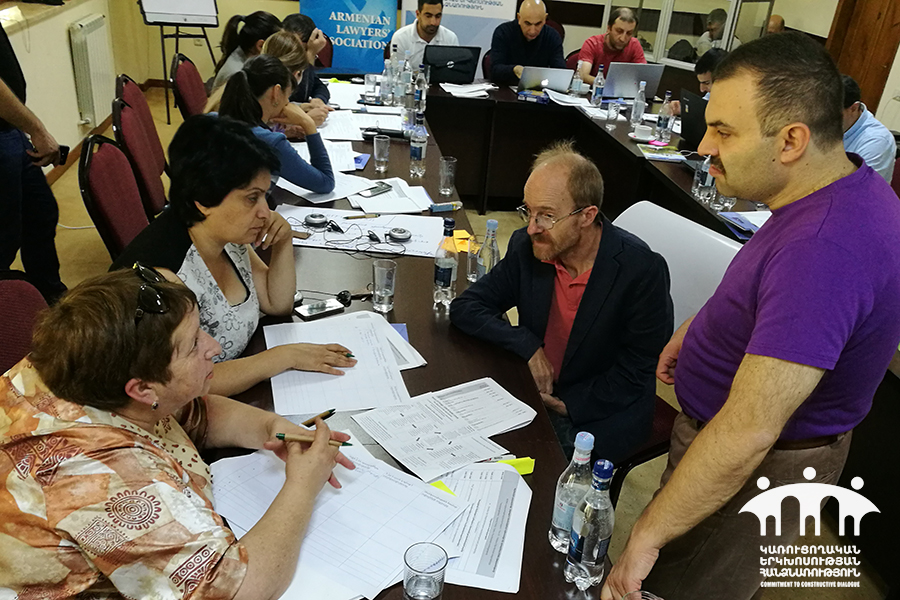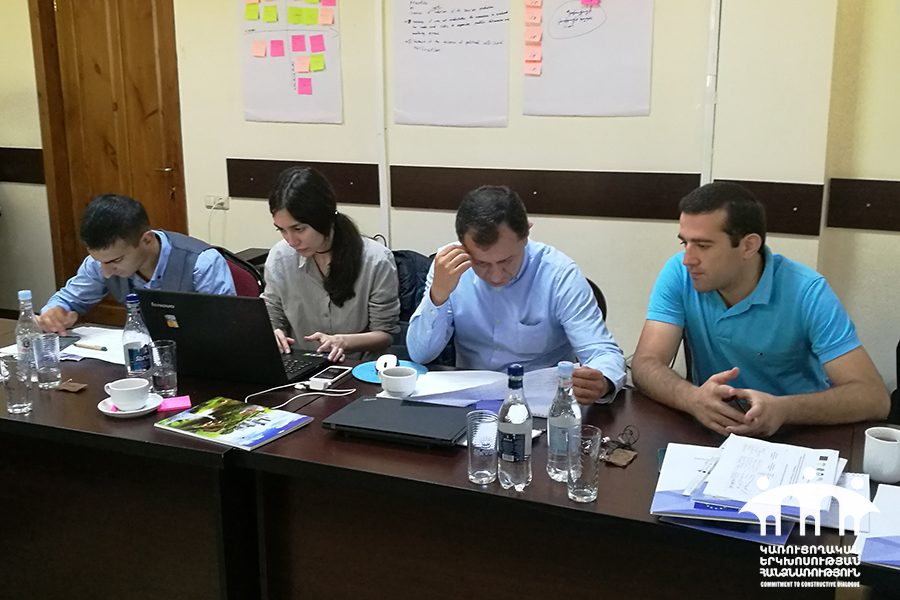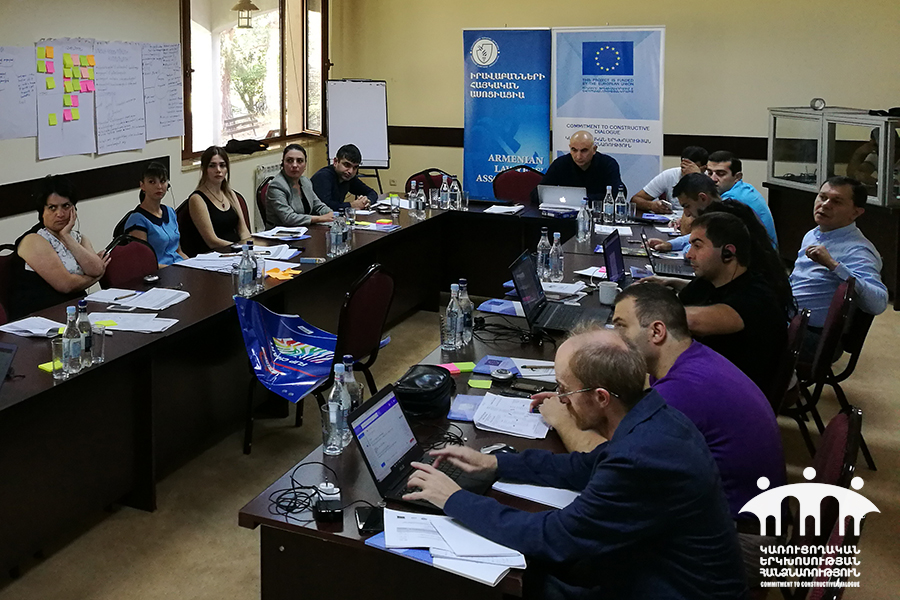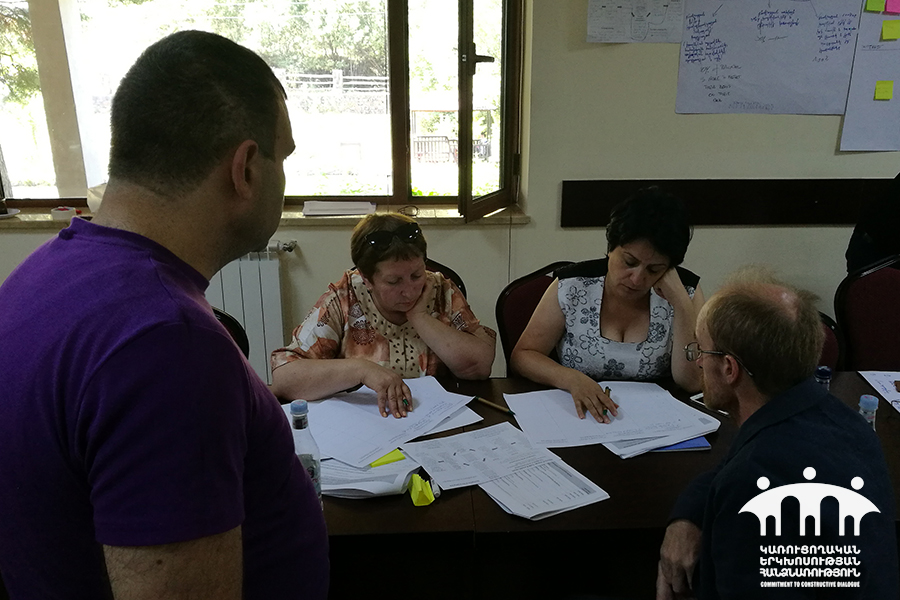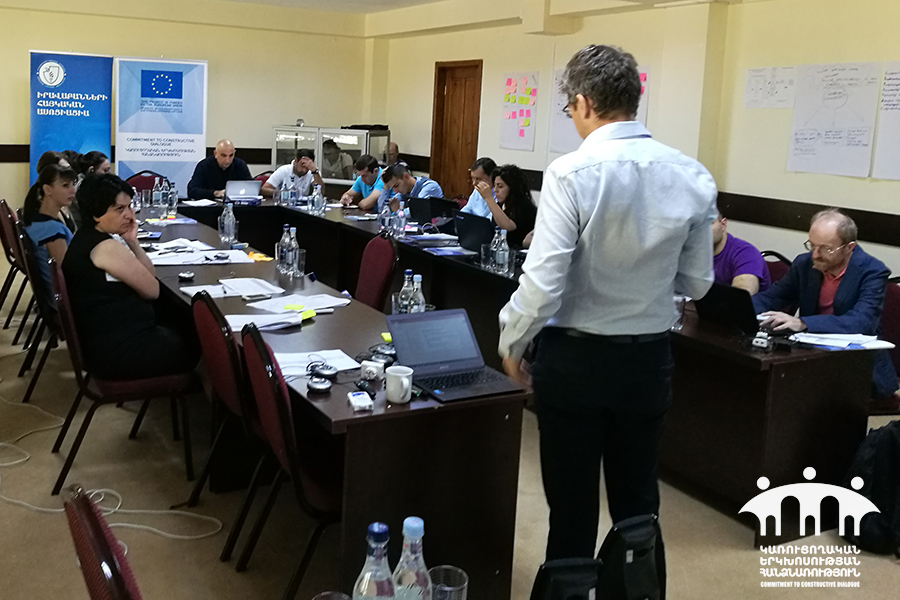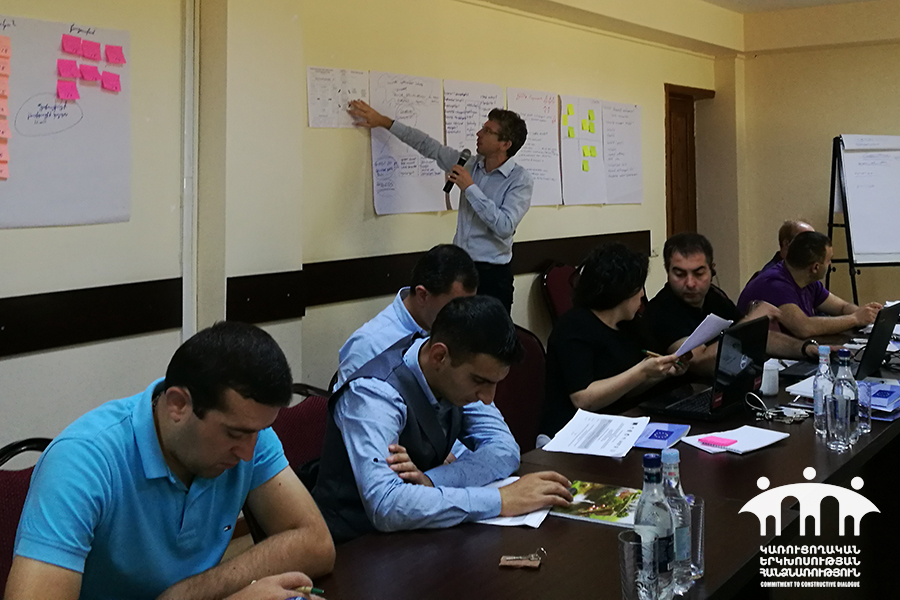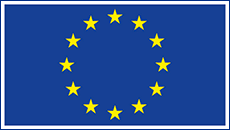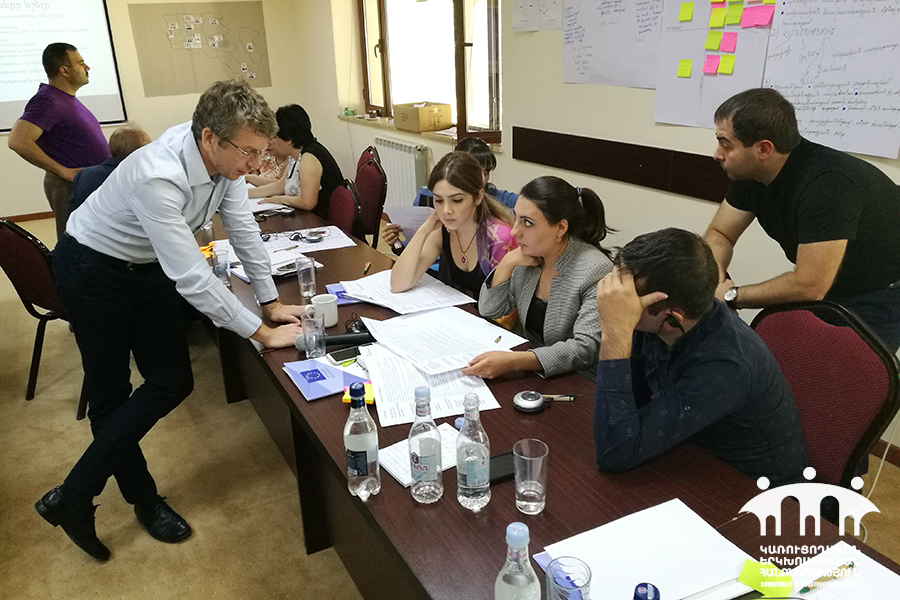
It has been the fourth day since the seminar entitled “Cooperation of non-profit non-governmental organisations and government in the Czech Republic. Development of public policies and dialogue. Lessons learned from the operation of the incubators facility” is continuing in Aghveran.
The training is held in the in the scope of the “Commitment to Constructive Dialogue” project funded by the European Union.
During the previous days of the 5-day seminar Vojtěch Černý, an expert from the Czech “Agora” NGO, presented the RAPID mapping method to the training participants (ROMA approach – RAPID OUTCOME MAPPING APPROACH), as well as successful policy making engagement methodology and its influence measurement method.
Today, the participants fulfilled practical tasks and enhanced their knowledge on the topic, in addition to designing their engagement strategy framework.
Afterwards, the representatives of the coalitions and networks formed in the scope of the project present their CSO alliances, their prepared strategies, etc.
The participants also had discussions on the methods, tools, and resources needed for measuring the influence of networks on policies.
The “Commitment to Constructive Dialogue” project is implemented with the financial support of the European Union by a Consortium of civil society organisations, which are the Armenian Lawyers’ Association (lead organisation), Agora Central Europe (NGO based in the Czech Republic), the Armenian Centre for Democratic Education-CIVITAS, the International Centre for Human Development, the SME Cooperation Association and the Union of Communities of Armenia.
The project aims to enhance the influence of civil society organisations (CSOs) and CSO coalitions/networks on public policies in Armenia. This will allow organisations that are already working in sectoral coalitions to access additional resources, new groups of civil society experts to come together and to encourage them to place their causes on the local and national policy agenda, to identify common concerns and priorities and approach government bodies with constructive and strategic policy engagement initiatives.
The project will provide sub-grants to CSOs and CSO coalitions for developing public policies and bringing significant changes in the 9 target sectors selected within the project, including those of justice, human rights, public finance management, business, education, and the social sector: social inclusion of children with disabilities, agriculture, economy, and energy.


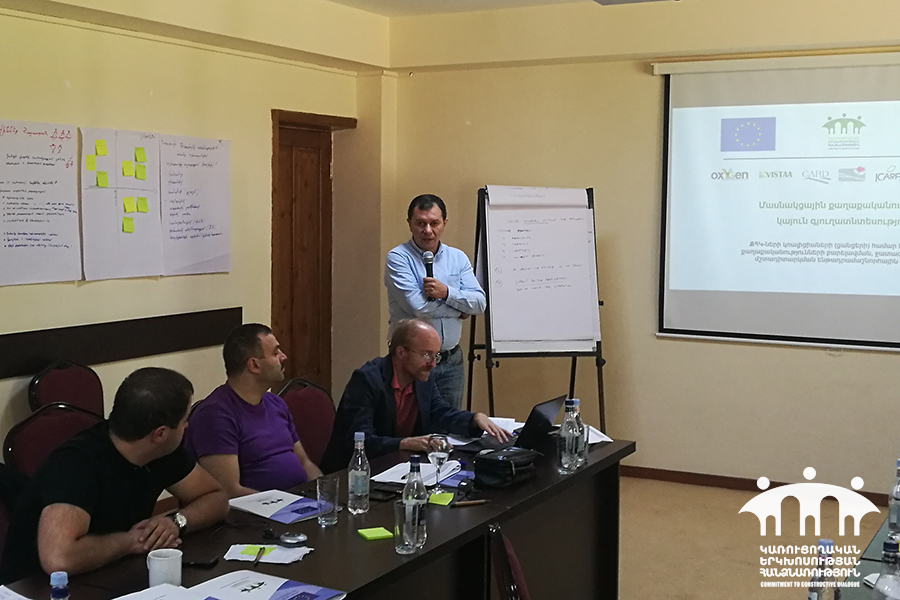

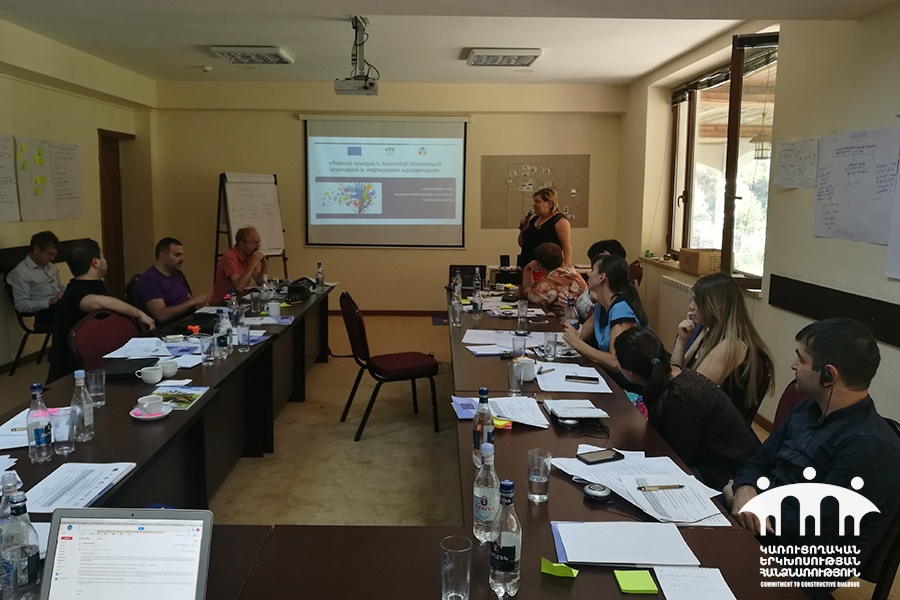

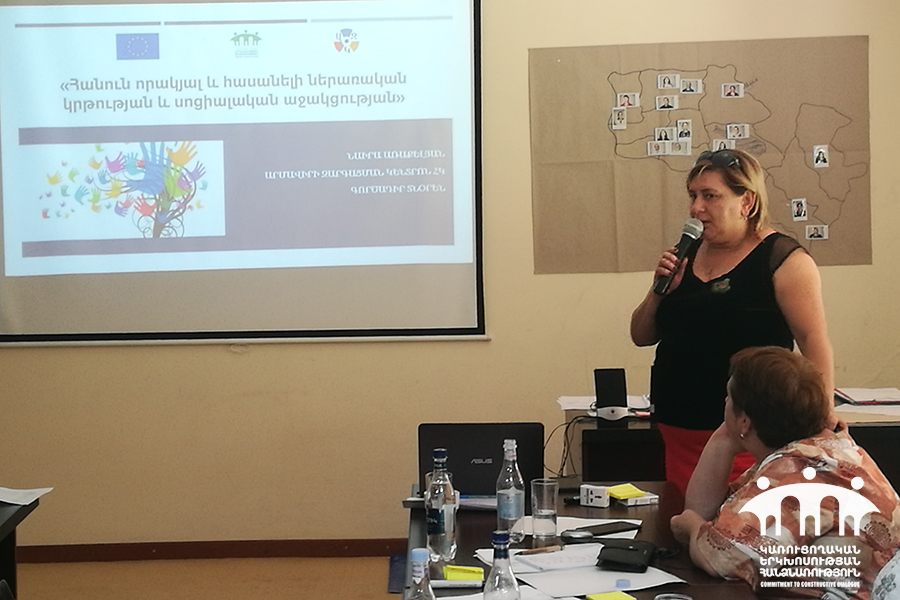

 копия.jpg)
 копия.jpg)
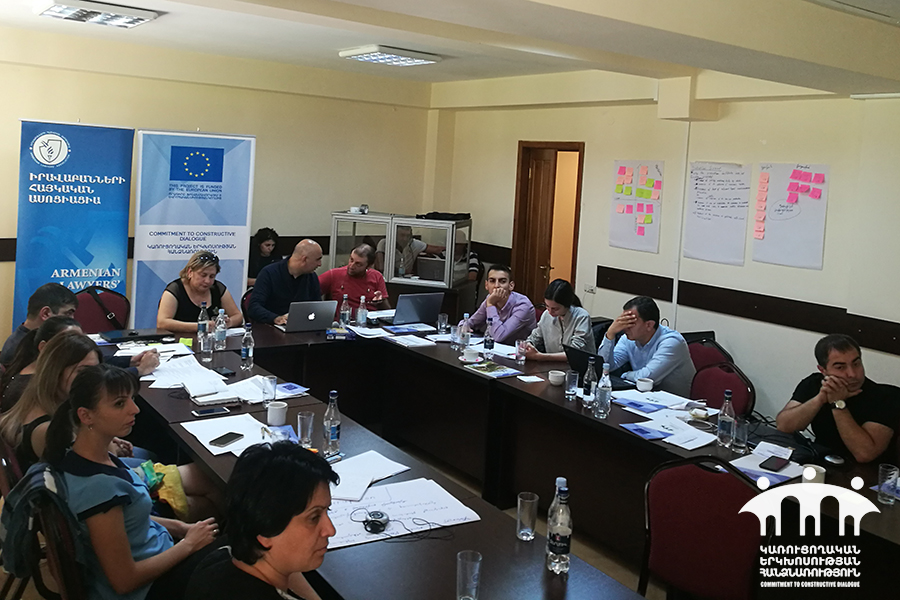

 копия.jpg)
 копия.jpg)
 копия.jpg)
 копия.jpg)
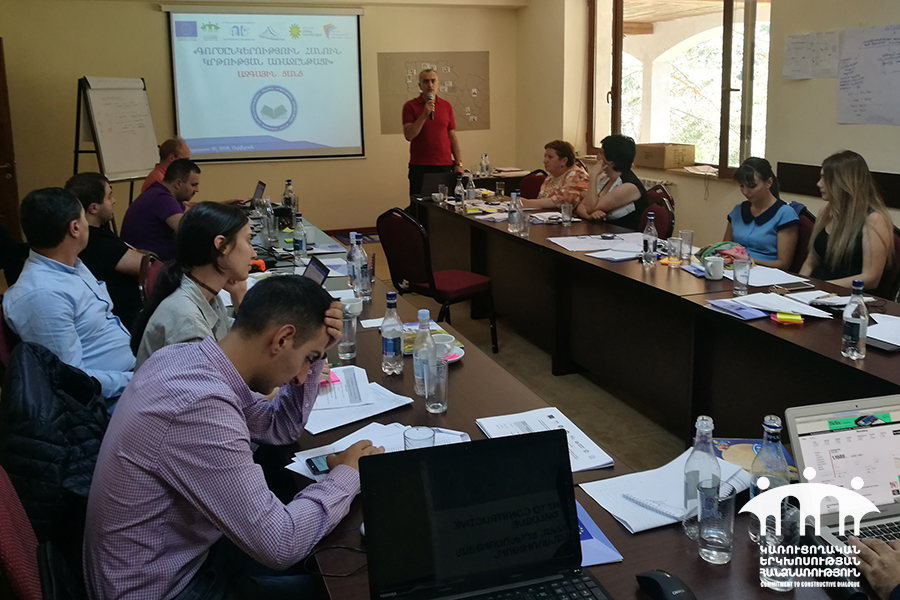

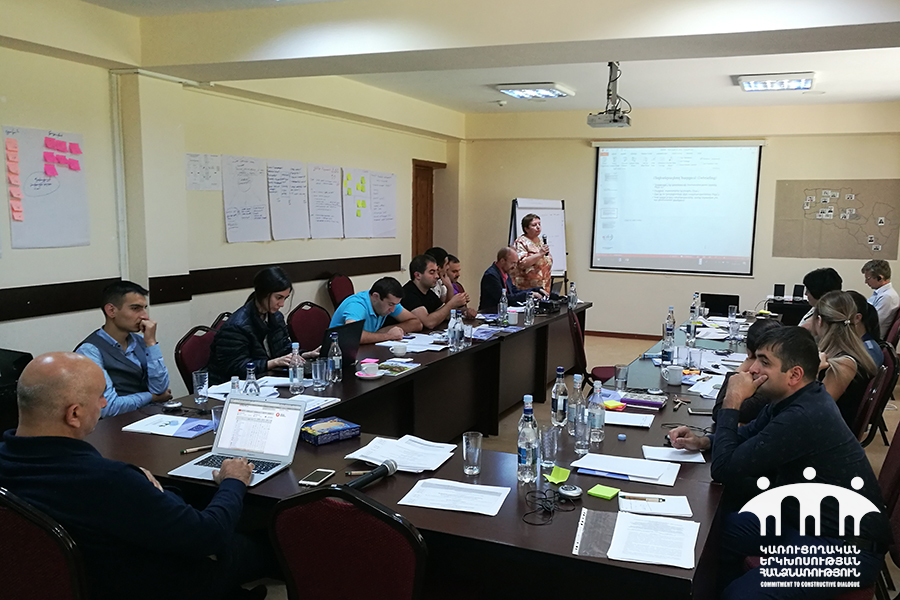

 копия.jpg)
 копия.jpg)
 копия.jpg)
 копия.jpg)
